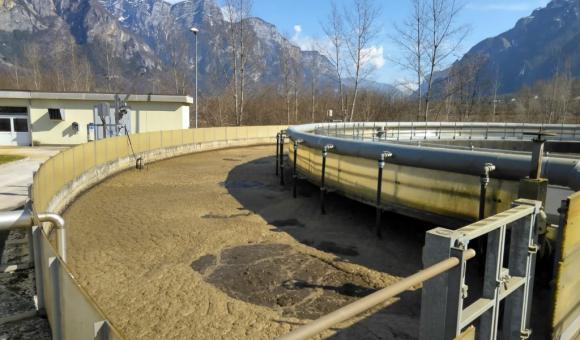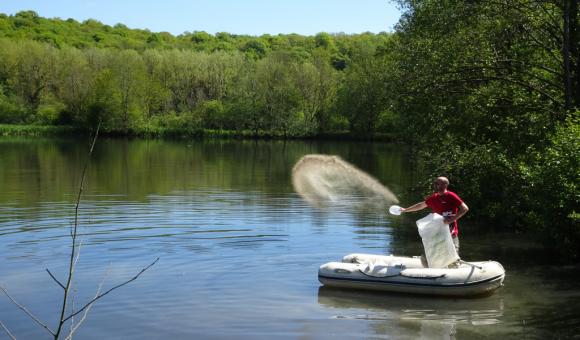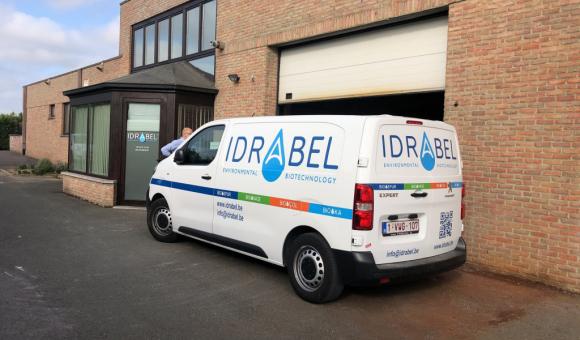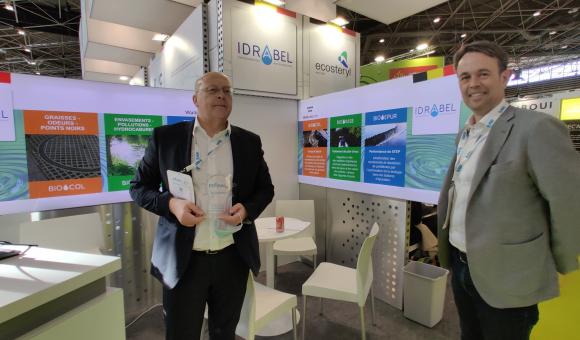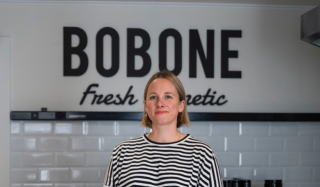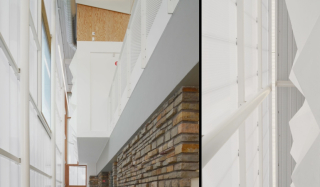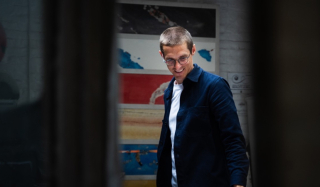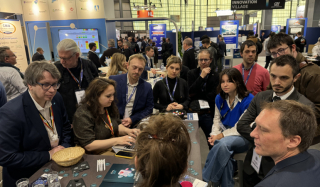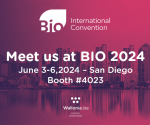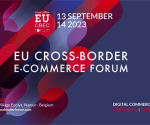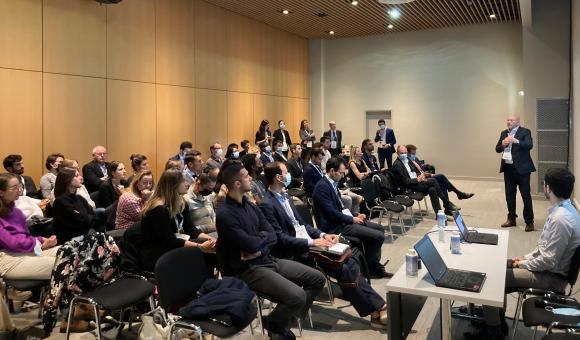
The Pollutec trade fair, an international showcase for environmentally friendly solutions for industry, cities and regions, is currently running in Lyon. A real springboard for companies looking to show off their innovations and solidify their standing internationally, the event has been a regular appointment for Belgian and Walloon companies for more than 15 years. For Idrabel, a Walloon company that specialises in water treatment, this is their first time taking part. What are their expectations and their goals ? We talked with CEO, Christian Gennaux, to find out. Meeting.
Thirty minutes late… That’s more or less the extra time we had to wait for our interview with the team from Idrabel. A lapse of memory? On the contrary, Christian Gennaux, the CEO of Idrabel, is quite annoyed when he quickly joins us at his stand. As he does, he explains that this delay was caused by a longer-than-anticipated meeting with distributors from Vietnam, who will allow the company to offer their solutions in this South Asian country at the height of an economic boom. ‘Trade fair’ conditions, as some might say. So, it’s up to us to find out more about Idrabel and its expertise, which is clearly drawing interest from around the world. Meeting.
Christian Gennaux: Here you are. Our meeting with our future distributor from Vietnam (Envi Eco) took longer than expected, but… I’m all yours (laughs).
Wallonia Export: Hello, Christian. Thanks for inviting me to your stand. For starters, perhaps you could introduce Idrabel to those who don't know you ?
CG: IDRABEL is a company that was founded in 1996 and which is active in the biotechnologies sector. We develop, produce, market and implement products that are intended to treat organic, natural, household and industrial pollution, such as, for example, polluted water and sludge and the presence of grease in pipes. Our main applications are the treatment of sewers and their sanitation, the treatment of water and silt in bodies of water (rivers, lakes, lagoons, etc.) and increasing the efficiency of individual, domestic and industrial purification stations.
And how does the principle of your solutions operate ?
CG: Our products are developed from an exclusive process of micro-organism biofixation on natural mineral supports. Our solutions come from porous natural mineral supports (limestone, schist, aluminosilicates, etc.) that we crush. We then fix the biological element to the rock (fungi, bacteria, etc.), as well as trace elements that allow the bacteria to feed, to multiply and to trigger the degradation process. Ultimately, the product comes as a powder. It's easy to handle, store, transport and, in particular, use.
Is Idrabel the only company in your sector, or is there a lot of competition ?
CG: We are practically the only ones working on the biological treatment of sewers. It is only when it comes to treating bodies of water and industrial stations that we encounter a little more competition. However, we never do exactly the same thing. Paradoxically, this can sometimes be a cause for concern because our solutions are less visible than other systems and, during major calls for tender, we do not always have enough clout to respond to them alone.
What are your next projects ?
CG: Our R&D department is very active and we’re pursuing research in several fields: the treatment of hydrocarbon pollution, combating cyanobacteria, capturing heavy metals, treating glycol that has been used to defrost airplanes and some other things that I have to keep to myself… (laughs).
However, our small structure prevents us from conducting all of this research alone at the same time, so we’re looking for private and public partners to bring these incredible projects to fruition.
In the past (2010), we conducted a research project with Professor Thierry Hance (UCL). We were able to fix BTi (Bacillus thuringiensis var. israelensis), which is an effective way to eliminate mosquito larvae. Our research was even published in Faunistic Entomology 2011 (2010) 63 (3), 1157–163. This advance should ultimately allow us to reduce the amount of mosquito larvae found in sewers and contaminated bodies of water. We hope to sell this product some day.
What element of sustainable development can be found in your products ?
CG: Our products provide real financial and environmental benefits, by responding to the current and future challenges faced by individuals, municipalities, regions, governments and various industries. Recent history has shown that using chemical solutions in a widespread manner is sometimes effective in the very short term, but they often solve one problem and create new ones. Here, we’re just working with nature.
Are your partners increasingly sensitive to these issues ?
CG: Absolutely. Right now, there is undoubtedly a green wave. Water is finally being seen as a precious and finite resource. In light of the rapid economic development in recent decades, more and more countries, both rich and poor, are finally taking issues related to water seriously and calling out for sustainable solutions. We offer sustainable solutions that not only reduce our partners’ carbon footprint, but also, for those who have incorporated the 17 Sustainable Development Goals (SDGs) into their business strategy, we help to achieve these quickly and easily (in particular, those pertaining to water, namely SDG 6 & 14).
In which markets and with which clients are you currently working ?
CG: We primarily sell to communities and public stakeholders (municipalities, cities, intermunicipal organisations that have problems with odours, blockages, the presence of grease in their infrastructures). We also have private clients who are active in the agri-food, textile and paper sectors, among others. They ask us to treat their water.
Internationally, we have a distributor in The Netherlands who works with the city of Rotterdam in particular (Note from the editor: the city's sewers are cleaned with Idrabel products) and Dutch army bases. We’re also working in Italy, with Naples, the Port of Genoa, Milan, the Amalfi Peninsula, etc. We have a partner in Spain who distributes our products to hotel chains that recycle their waste water to irrigate their golf courses. We just made our first sales in Morocco. We also have an agreement with a Coca Cola production site in Mayotte…
Just recently, we won a call for tenders as part of the European LIFE programme, along with a consortium of other companies. We’re going to treat marine sediments with our bioremediation systems, coupled with an electrokinetic process, on a former, highly pollutant industrial site on the Mediterranean coast. The project (SEDREMED) will kick off next month.
What do exports represent to you? Do you have specific projects ?
CG: For us, working internationally is essential because the markets in Wallonia and Belgium are too small for our expansion needs. Our international turnover represents more than 25% and will soon reach 30% and even more in future. We prospect a little, but our distributors are the key. They’re the ones we rely on. We signed an agreement with distributors in Vietnam, we have a project south of Bandung (West Java) in Indonesia and we should be signing onto another large-scale project with Morocco soon.
Has Wallonia Export already helped you with your export projects ?
CG: Yes, absolutely. We are here at Pollutec, in this little cluster of Walloon companies led by Wallonia Export. But we have already done the Ecomondo trade fair in Rimini, Italy with AWEX. Otherwise, the services of the Wallonia Export & Investment Agency have already been a big help to us with our international prospecting, both in terms of nearby countries like Spain or France and more far-flung destinations like Vietnam and Indonesia. It's a real bonus and comfort to have a team there who can advise us, organise meetings with local stakeholders, ensure our files are followed up on, etc.
And what are your expectations for this edition of Pollutec?
CG: We have two main expectations, namely prospecting and assessing trends, new technologies and new players in our fields. Then, meeting potential prospects, opening up new markets, preparing future consortia to answer upcoming calls for tender, etc. There’s a lot to do!
Illustrations © Idrabel / Wallonia Export & Investment Agency
Author : Jonathan Avau (Wallonia Export)
